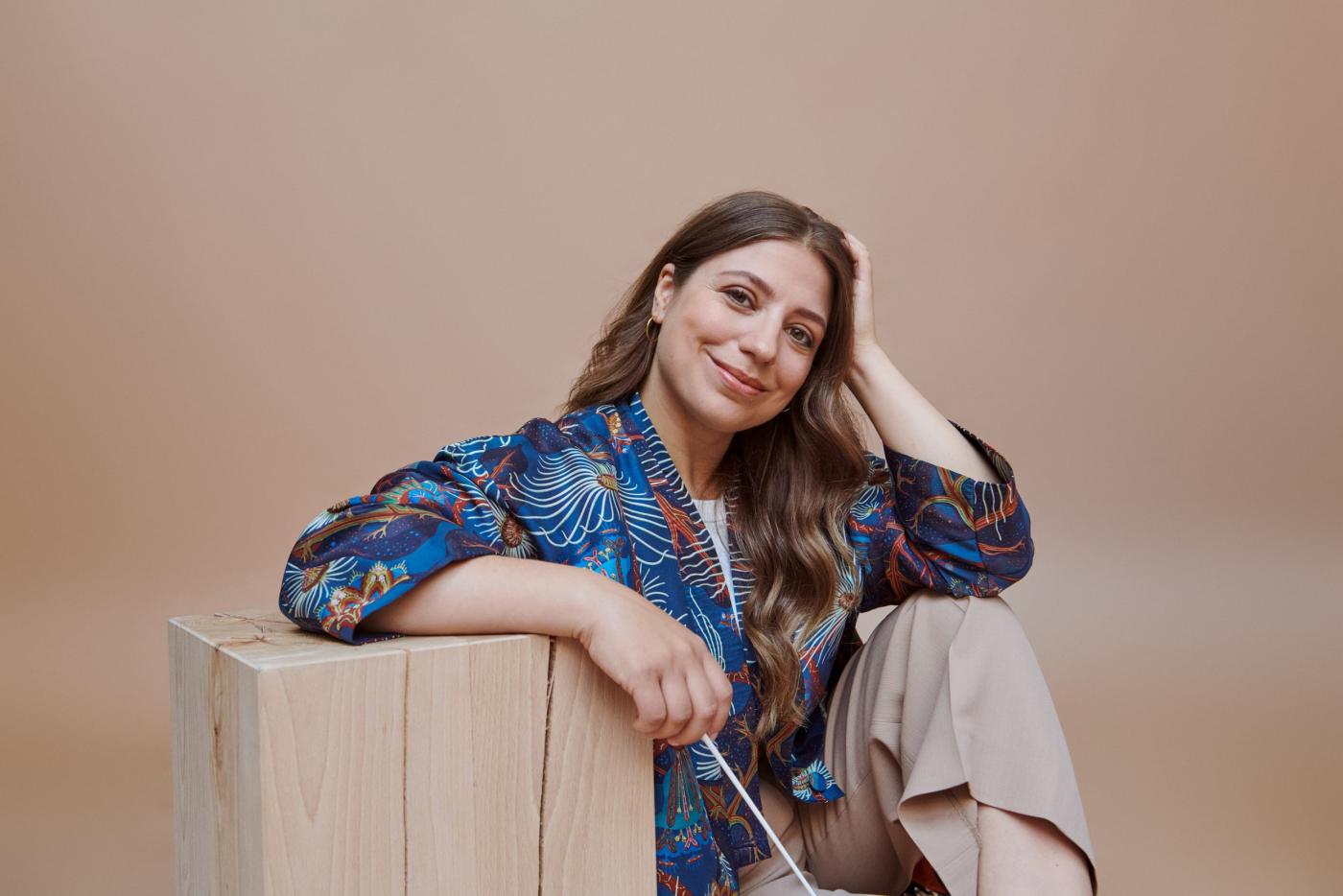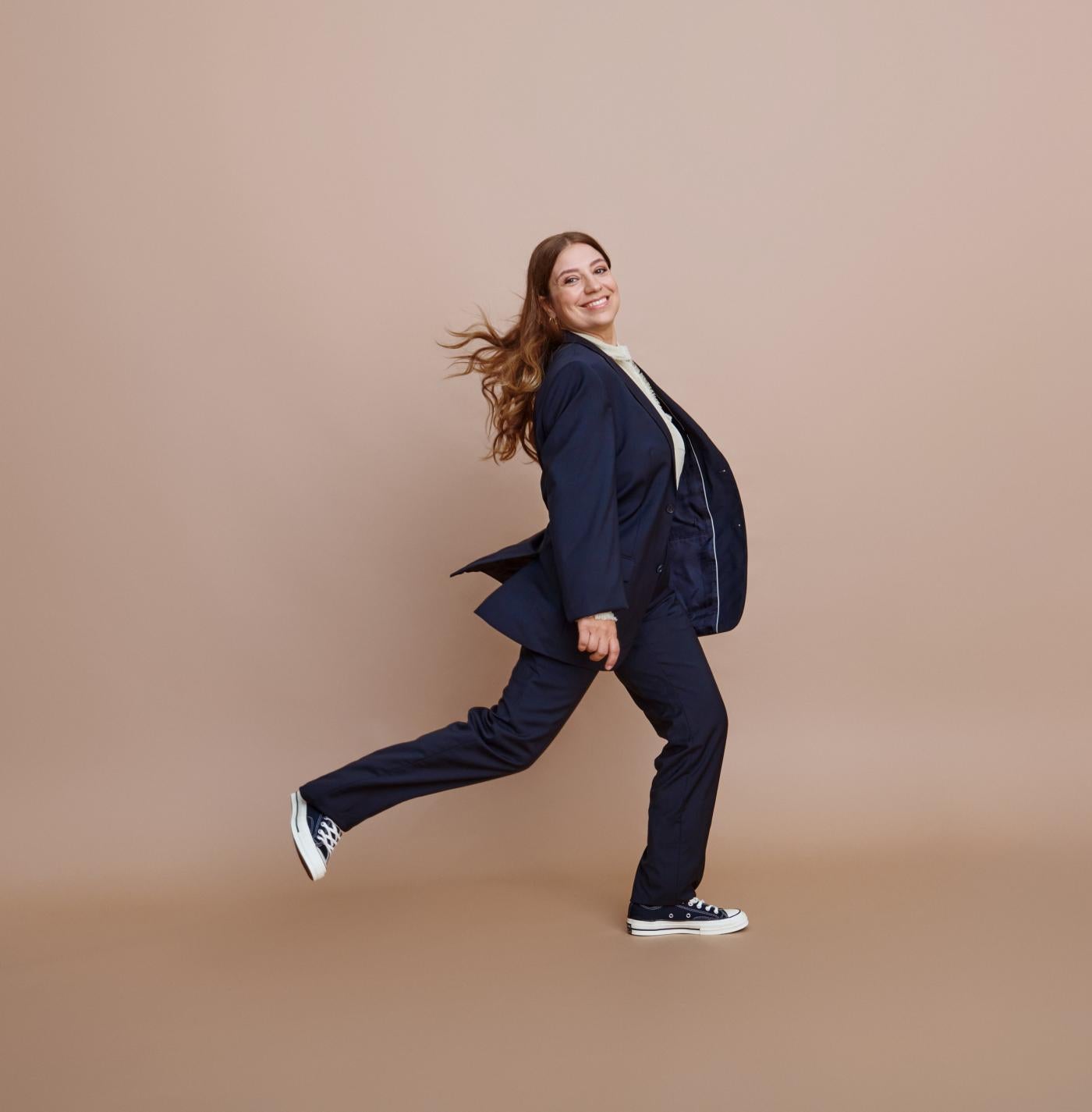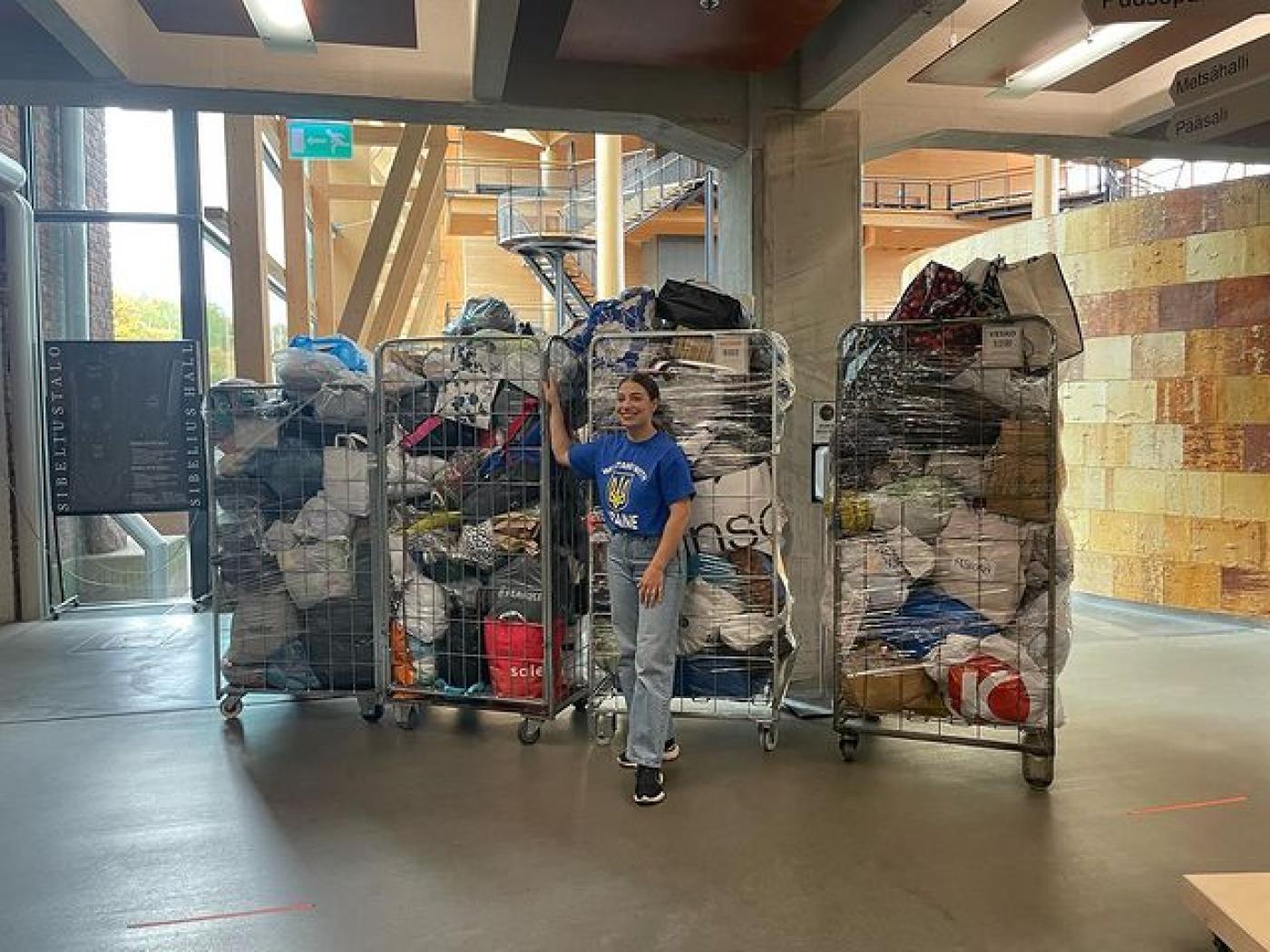Finnish-Ukrainian conductor Dalia Stasevska is a force of nature as you’ll see in our interview below. Just 38 years old, she is chief conductor of the Lahti Symphony Orchestra and principal guest conductor of the BBC Symphony Orchestra. In addition, this season, she makes 11 conducting debuts around the world, including leading the National Symphony Orchestra at the John F. Kennedy Center for the Performing Arts. The program (March 2 and 4th) is tailor-made for her passions, as it includes Finnish composer Jean Sibelius’ “nationalistic” Second Symphony, a delightful romp with Shostakovich’s Piano and Trumpet Concerto and Jessie Montgomery’s “Hymn for Everyone.”
I began by asking her how she “psychs” herself, achieves the level of confidence needed to lead the talented musicians of famous orchestras throughout the world.
Dalia Stasevska: I have no special tricks for preparing myself. I just come as I am, share the passion for music and hope it resonates with the musicians and audiences alike.
NL: What does it take in your opinion to be a great conductor?
DS: Number one, you have to love music to bits.
Number two, one must be constantly curious about music, arts, and surrounding life.
Number three, is to be a great communicator. You must be able to show it with your hand, verbalize what you want, and inspire your musician colleagues to believe in your vision.
NL: How do you think women conductors are changing and will continue to change the classical music world? Artistically? Philosophically? Personally? Many are young, like yourself, and that too, will (hopefully) change the “rules.”
DS: I’m extremely excited! So many new voices from various backgrounds have been given a chance to be heard even more in the past 5 years. It is clear this has and will continue to have a huge impact on classical music and the arts as whole. We are benefiting from this diversity!
That said, I hope that our industry will continue to be even more courageous and invest their efforts into female talent, in EVERY position.
NL: In DC, you’ll be conducting Dmitri Shostakovich’s Concerto for Piano, Trumpet and Strings and the Sibelius 2nd Symphony, plus a new work by Jessie Montgomery, “Hymn for Everyone.” Can you tell us about the pieces?
DS: Sibelius’s second symphony was written a year after the death of Sibelius’s second daughter. It was a huge tragedy for Aino and Jean from which they never fully recovered. After a heavy year of mourning, Sibelius decided to travel with his family to Italy to start over, find inspiration and continue his life. In doing so, the second symphony saw its beginning under the Italian sun.
The opening motive of the symphony is like heart beat. His heart is beating for new beginnings and hope. This energetic pulsation is the driving force throughout the symphony.
The second movement is the darkest of all movements— like personal notes from a diary. It is followed with a fierce third movement that cascades into a glorious finale.
Shostakovich’s first piano concerto is a fun piece, filled with piquant humor. Sometimes the music feels almost improvised— like an accompaniment to a Charlie Chaplin film.
Jessie Montgomery’s new piece is a beautiful and meditative hymn. Its inner silence invites both musicians and audiences to lull into the music. This will undoubtedly be a very exciting premiere!
NL: How do you approach new music? Where you can actually communicate with the composer, and their frame of reference may be more easily understandable. Does that make a difference?
DS: I approach new music the same way I do older pieces. You open the score and see where the music starts to lead you. With the premiere of course, there’s an element of excitement, since the piece hasn’t been performed or heard! It is like giving birth to a child… You can’t really know how it will turn out until you perform it in the concert!
NL: The pandemic seems to have had an important influence on musicians because it gave them time to think, to pursue projects, to learn...did it change you in any way?
DS: The pandemic was an interesting time for many reasons. Some musicians and organizations completely stopped functioning out of shock and others were extremely creative, filling our industry with ideas and possibilities. It made the industry question how we market our performances, as we were all forced to share information and be in touch through social media. The pandemic time allowed me to take a breath from a very busy schedule. It made me question what one finds important in life and music.
NL: Of course, another life-changing world occurrence is the invasion of Ukraine which has galvanized you. You have raised money, bought vans and packed them with supplies, and even driven them to the front. You’ve conducted concerts to bring people hope and a moment of joy. Tell us of your activities in Ukraine.
DS: This war has greatly dominated my past year. It was clear from the beginning that Russia would invade Ukraine with the goal of destroying everything Ukrainians had. I have tried to use every opportunity to help Ukrainians and used every platform to speak about Ukraine. I hope to unite people around the world to give unconditional support to Ukrainian people. They are fighting not only for their freedom and existence but also, for OUR common democracy and values.
I’ve been fundraising with my brothers since March 2022. With the raised funds we have been personally buying humanitarian aid for the front lines (for example, pick-up cars, sleeping bags, medicine, first aid, food, 20,000 woolen socks and 200 stoves, among many other things). We pack everything into purchased pick-up cars and drive ourselves to Ukraine. I’ve been twice during the past year.
We hand over these relief loads to Ukrainian foundations, with whom we collaborate. Foundation workers then deliver our supplies directly to the most war-torn areas. I intend to continue my volunteering as long as it is necessary, until there is victory for Ukraine.
NL: Something you said in a recent interview, really resonated with me. It is so easy to become tired, to develop tragedy fatigue, to feel helpless. But you bring us hope. You tell us not to let ourselves be tired. We all need to be reminded of this.
DS: The most important message is— people should not get tired of this war. We shouldn’t find ourselves thinking that this war is just a part of our normal, daily news. There is nothing ‘normal’ about this war. While we can take break from the news, the war machine is eating innocent civilians. We have to understand that if Russia wins it means that all autocratic and non-democratic countries will get a sign that it is ‘ok’ to invade sovereign countries without consequences.
This war is serious for the whole western world. Helping Ukraine win is an investment in global security. Ukrainian victory will be a victory for the whole world, a better world where things like what Ukrainians are enduring now, can never be repeated again.
Dalia Stasevska conducts the NSO Thursday, March 2 at 7 pm and Saturday, March 4 at 8 p.m.
Jessie Montgomery: Hymn for Everyone (NSO Co-commission)
Dmitri Shostakovich: Piano Concerto No.1 featuring Conrad Tao, piano and NSO Principal trumpet William Gerlach
Jean Sibelius: Symphony No. 2
PBS PASSPORT
Stream tens of thousands of hours of your PBS and local favorites with WETA+ and PBS Passport whenever and wherever you want. Catch up on a single episode or binge-watch full seasons before they air on TV.


